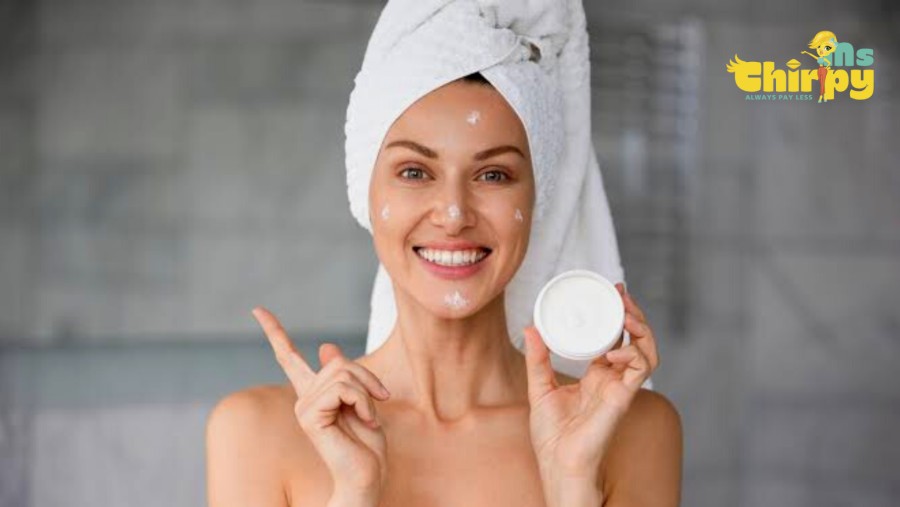
Summer Skincare Routine
17-May-2023
It's really important to take care of your skin as the heat and humidity can lead to excess oil production and breakouts. Here are some tips for a summer skin care routine:
Cleanse: Start your routine by washing your face with a gentle cleanser twice a day. Use a cleanser that is suitable for your skin type and avoid using hot water as it can strip away natural oils from your skin.
Cleansing your skin is essential for maintaining healthy skin. Here are some reasons why:
Removes dirt and impurities: Throughout the day, your skin accumulates dirt, oil, and other impurities that can clog your pores and lead to breakouts. Cleansing your skin removes these impurities and prevents acne and other skin problems.
Helps prevent premature aging: Environmental pollutants and other toxins can cause damage to your skin and accelerate the aging process. Cleansing your skin helps to remove these pollutants and prevents premature aging.
Increases product absorption: When you cleanse your skin, you create a clean canvas that allows other skincare products like serums and moisturizers to penetrate deeper into your skin, making them more effective.
Improves skin texture: Regular cleansing can improve your skin's texture by removing dead skin cells, leaving your skin smoother and brighter.
Maintains the skin's natural pH balance: Cleansing your skin helps to maintain the skin's natural pH balance, which is essential for healthy skin. When the skin's pH balance is disrupted, it can lead to dryness, irritation, and other skin problems.
Overall, cleansing your skin is an important step in any skincare routine. It helps to keep your skin healthy, radiant, and youthful-looking.
Exfoliate: Exfoliation is crucial to remove dead skin cells and unclog pores. Use a gentle exfoliator once or twice a week to keep your skin smooth and fresh. Avoid over-exfoliating as it can damage your skin.
Exfoliating your skin is the process of removing dead skin cells from the surface of your skin, revealing smoother and brighter-looking skin. Here are some benefits of exfoliating your skin:
Improves skin texture: Exfoliating your skin can help to remove rough, dry, and flaky patches, leaving your skin smooth and soft.
Unclogs pores: Dead skin cells can accumulate on the surface of your skin and clog your pores, leading to blackheads, whiteheads, and acne. Exfoliating can help to remove these dead skin cells, unclog your pores, and prevent breakouts.
Enhances product absorption: When you exfoliate your skin, you create a clean canvas that allows other skincare products like serums and moisturizers to penetrate deeper into your skin, making them more effective.
Reduces the appearance of fine lines and wrinkles: Exfoliating can help to stimulate cell turnover, which can reduce the appearance of fine lines and wrinkles.
Brightens skin: Exfoliating can help to remove dull and dead skin cells, revealing brighter and more radiant-looking skin.
However, it's important to use the right exfoliator for your skin type and to avoid over-exfoliating, as it can damage your skin. Exfoliating once or twice a week is generally sufficient for most skin types.
Toner: Use a toner to balance your skin's pH level and remove any remaining dirt or makeup. Look for a toner with hydrating ingredients like glycerin or hyaluronic acid to keep your skin moisturized.
Moisturize: Moisturizing is important to keep your skin hydrated and prevent it from becoming dry or flaky. Use a lightweight moisturizer that is oil-free and non-comedogenic to avoid clogging your pores.
Sunscreen: Applying sunscreen is crucial to protect your skin from harmful UV rays. Choose a broad-spectrum sunscreen with an SPF of at least 30 and apply it every two hours if you're spending time outside.
Sunscreen is very important for protecting your skin from the harmful effects of the sun's ultraviolet (UV) rays. Overexposure to the sun's UV rays can lead to sunburn, premature aging of the skin, and an increased risk of skin cancer.
Sunscreen works by absorbing or reflecting the sun's UV rays, reducing the amount of radiation that penetrates the skin. It's recommended that you wear sunscreen with an SPF (sun protection factor) of at least 30, which will block out about 97% of UVB rays. It's also important to reapply sunscreen every two hours, or more frequently if you're swimming or sweating.
In addition to wearing sunscreen, it's also a good idea to seek shade during peak sun hours (typically between 10 a.m. and 4 p.m.), wear protective clothing like hats and long-sleeved shirts, and avoid tanning beds. By taking these steps to protect your skin from the sun, you can reduce your risk of skin damage and skin cancer.
Hydrate: Drink plenty of water to keep your skin hydrated and prevent dehydration. Eating water-rich fruits and vegetables can also help keep your skin healthy.
Use a face mask: Use a face mask once a week to nourish and rejuvenate your skin. Look for a face mask with ingredients like aloe vera or cucumber to soothe your skin and reduce inflammation.
Remember, consistency is key when it comes to skincare. Stick to your routine and be patient to see the results.